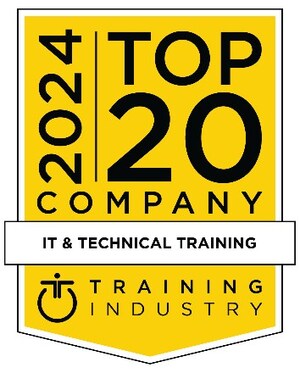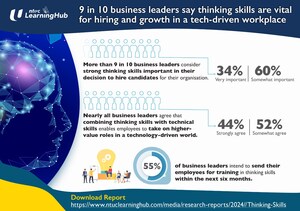- 7 in 10 business leaders (69%) reveal that their organisation currently has Workplace, Safety and Health (WSH) measures in place. For those who do not, only 28% plan to implement WSH measures in the foreseeable future, while 4% do not plan to implement at all.
- Business leaders cite difficulty in ensuring compliance with WSH regulations (49%), limited budget to procure WSH technologies (37%), and a lack of expertise in WSH (35%) among the top challenges they face.
- Business leaders say their organisations intend to invest in WSH technologies like data analytics systems (29%), machines to undertake repetitive or dangerous work (29%), and reporting/incident management applications (29%) as most of them view that it is important (38% very important, 54% important) to adopt WSH technology.
- While 9 in 10 business leaders (91%) are willing to send employees for training programmes on WSH technology and sustainability, they are also keen to hire talent in areas of occupational health (30%), risk assessment (27%), WSH enforcement (26%) alongside environmental sustainability management (26%).
SINGAPORE, Nov. 29, 2023 /PRNewswire/ -- Nearly all business leaders agree (57% strongly agree, 40% somewhat agree) that it is necessary to implement Workplace Safety and Health (WSH) measures, with 7 in 10 (69%) revealing that their organisation currently has WSH measures in place. Among those who do not, only 28% plan to implement WSH measures in the foreseeable future, while 4% do not intend to do so at all.
Difficulty in ensuring compliance with WSH regulations (49%) and enforcing WSH measures (37%), having a limited budget to procure WSH technologies and a lack of expertise in WSH (35%) are some of the top challenges that business leaders face. Moreover, there is a misconception that WSH is only necessary for traditionally higher-risk industries such as Construction, Manufacturing, Marine, Transportation and Storage, as indicated by nearly half of business leaders (49%).
Despite this, business leaders intend to invest in WSH technologies like data analytics systems (29%), machines to undertake repetitive or dangerous work (29%), and reporting/incident management applications (29%) since the majority of them perceive it as important (38% very important, 54% important) to adopt WSH technologies.
These are some of the key findings from NTUC LearningHub's recently launched Industry Insights Report 2023 on Workplace Safety and Health, which explores the current sentiment on WSH in Singapore, hiring trends and training opportunities. Based on a survey of 200 business leaders and interviews with industry practitioners, the report also uncovers organisations' approach in leveraging technology to create safer workplaces and addressing the role of sustainability in WSH.
As organisations embrace emerging economies to further WSH outcomes, 9 in 10 business leaders (91%) are willing to send their employees for training in programmes on WSH technology and sustainability. Concurrently, business leaders express intentions to hire new talent to fill WSH job roles, including occupational health (30%), risk assessment (27%), WSH enforcement (26%) in addition to environmental sustainability management (26%).
Business leaders also voice that on top of technical skills, problem-solving skills (40%), adaptability (38%), and creative thinking (32%) are among the top critical core skills that are valuable to WSH professionals to excel in their field.
Commenting on the report findings, Tay Ee Learn, NTUC LearningHub's Chief Sector Skills Officer, says, "No sector is immune to workplace accidents, underscoring the need for organisations to acknowledge the significance of investing in and creating a robust WSH culture in the workplace. This will promote the safety and wellness of the company's most vital asset – its employees. While organisations embrace the emerging digital and green economies, the scope of WSH-related roles and responsibilities will expand, necessitating WSH professionals to be armed with a diverse set of skills to fulfil their roles safely and sustainably. Employers must support the continual learning and development of their in-house talent to meet the demands of the future WSH landscape through skills training. A nimble, competent, and future-ready workforce will ensure that business can thrive in a greener and more digitalised workplace."
To download the Industry Insights Report 2023 on Workplace Safety and Health, please visit https://www.ntuclearninghub.com/media/research-reports/2023/workplace-safety-health. To find out more about the courses, training, and grants, please contact NTUC LearningHub at www.ntuclearninghub.com.
### END ###
About NTUC LearningHub
NTUC LearningHub is the leading Continuing Education and Training provider in Singapore which aims to transform the lifelong employability of working people. Since our corporatisation in 2004, we have been working with employers and individual learners to provide learning solutions in areas such as Infocomm Technology, Generative AI & Cloud, Healthcare, Retail & Food Services, Employability & Literacy, Business Excellence, Workplace Safety & Health, Security, Human Resources & Coaching and Foreign Workers Training.
To date, NTUC LearningHub has helped over 29,000 organisations and achieved more than 2.6 million training places across more than 2,900 courses with a pool of about 900 certified trainers. As a Total Learning Solutions provider to organisations, we also forge partnerships to offer a wide range of relevant end-to-end training. Besides in-person training, we also offer instructor-led virtual live classes (VLCs) and asynchronous online learning. The NTUC LearningHub Learning eXperience Platform (LXP) — a one-stop online learning mobile application — offers timely, bite-sized and quality content for learners to upskill anytime and anywhere. Beyond learning, LXP also serves as a platform for jobs and skills development for both workers and companies.
For more information, visit www.ntuclearninghub.com.
SOURCE NTUC LearningHub




Share this article